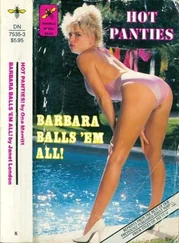Buffett has long been a believer that corporate-government partnerships are investment opportunities. While Buffett is famous for owning Dairy Queen and other all-American private companies, two of his largest holdings are in railroads and regulated utilities. He regularly lobbies for and counts on significant public money to make them more profitable.
After the financial crisis in the fall of 2008 appeared to be easing, Buffett turned his attention to championing the stimulus program for the Obama administration. When he went on television to proclaim his support for a stimulus, he was never asked what he might get out of the deal. A candid answer would have taken up many valuable minutes of airtime.
In late 2009, Buffett made his largest investment ever when he decided to buy Burlington Northern Santa Fe Railway (BNSF). It was not just a bet on the financials of the railroad industry; it was also a huge bet on his friend President Obama's budget priorities. As the Wall Street Journal reported, "Berkshire Hathaway Inc.'s planned purchase of Burlington Northern Santa Fe Corp. represents a bet that upcoming Washington policies to improve infrastructure and combat climate change will be a boon to the freight-railroad industry. President Barack Obama has said railroad investment will be a cornerstone of his transportation policies, given the environmental benefits and improved mobility that come with taking cars and trucks off roads." 22
Others in the railroad industry saw Buffett's involvement as very helpful, precisely because he was so politically connected. "It's a positive for the rail industry because of Buffett's influence in Washington," explained Henry Lampe, president of the Chicago South Shore & South Bend, a short-haul railroad. 23
Buffett bought the BNSF just as the Obama administration was beginning a series of initiatives to rapidly expand the government's commitment to spending on railroads. 24After Buffett took over the company, he dramatically increased spending on lobbyists. Berkshire spent $1.2 million on lobbyists in 2008, but by 2009 its budget jumped to $9.8 million, where it has generally remained. Pouring money into lobbying is perhaps the best investment that Buffett could make. 25
President Obama's plans to invest heavily in railroads, including a commitment to high-speed rail, position BNSF to benefit handsomely. In the Seattle area there have already been discussions between local officials and BNSF about either leasing or selling its rail lines for an intercity project. And that's just the start. A map of the BNSF lines around the country overlaps nicely with the government's proposed high-speed rail lines, from Seattle to Florida, California to the Northeast. Buffett is geographically and strategically positioned to profit from those government-funded rail systems, should they be built.
All together, in the stimulus package created in 2009, the federal government set aside $48 billion (of the total $787 billion) for infrastructure improvement, some of which goes to railroads. How much will BNSF benefit? It's nearly impossible to calculate. Type BNSF on the Recovery.gov website, which tracks grants, subsidized loans, and contracts signed under the stimulus, and you find 1,800 entries, including everything from $36 million grants from the Department of Homeland Security to money from the Environmental Protection Agency.
Buffett also owns MidAmerican Energy Holdings, which received $93.4 million in stimulus money. General Electric, of which he owns a $5 billion stake, was one of the largest recipients of stimulus money in the country.
As Buffett often does, he puts his ideas in down-home terms in his famous annual letter to Berkshire investors. He doesn't mention lobbyists, government funds, bailouts, or stimulus grants. "We see a 'social compact' existing between the public and our railroad business, just as it is the case with our utilities," he said in his 2010 annual letter to shareholders. "If either side shirks its obligations, both sides will inevitably suffer. Therefore, both parties to the compact should—and we believe will—understand the benefit of behaving in a way that encourages good behavior by the other. It is inconceivable that our country will realize anything close to its full economic potential without it possessing first-class electricity and railroad systems." He further noted that both businesses "require wise regulators who will provide certainty about allowable returns so that we can confidently make the huge investments required to maintain, replace, and expand the plant."
The term "social compact" sounds benign. But when did American voters make a compact to turn one of the richest men in America into one of the biggest recipients of taxpayer subsidies?
In August 2011, Buffett vacationed with President Obama on Martha's Vineyard and they discussed the economy. Shortly after that, he agreed to host an Obama reelection fundraiser in New York City, for which contributors could buy VIP tickets for $35,800 to meet Buffett and talk about the economy. 26
It has long been known to be Warren Buffett's style to base major financial decisions on a few phone calls. As fellow investor Steven Rattner pointed out, "Warren Buffett has shown that superb investing need not entail the months of due diligence and deliberation that private equity firms typically apply to a deal. Buffett has been known to make successful multibillion-dollar bets on the basis of a few meetings or phone calls." 27That is particularly true if those phone calls are going to Washington.
Warren Buffett is a financial genius. But even more important for his portfolio, he's a political genius.
7. CRONIES ON PARADE: HEDGE FUNDS, DEFENSE CONTRACTORS, COLLEGES, BIG OIL...AND GEORGE SOROS
MOST CAPITALIST CRONIES are neither Baptists nor bootleggers. They do nothing illegal, but neither do they claim to be holy. Instead, they quietly lobby Congress, and their fortunes rise and fall on policy decisions rather than market competition. In this chapter, we will consider a wide range of examples, from finance to manufacturing to education.
Perhaps the best investment a hedge fund can make these days is not in a financial wizard but a politician. Hedge funds and financiers are becoming more political than ever before. And political figures and government appointees with no background in finance (former Vice Presidents Dan Quayle and Al Gore, and former Secretary of State Madeleine Albright, for example) have launched their own investment funds. "The former politician/investment guru fraternity appears to be growing," noted one industry observer. 1And former politicians are finding a career that can be even more lucrative than lobbying: providing "political intelligence" to investment funds, based on private conversations with congressional staffers and sitting senators.
In the world of investment finance it is increasingly important to be well connected politically. As briefly mentioned earlier, one study by two economists looked at 351 hedge funds between the years 1999 and 2008 and found that "politically connected" hedge funds—that is, funds that hired lobbyists and made campaign contributions—had a much better rate of return on investments than those which were not. Political connections created "an abnormal rate of return of 1.4 to 1.6 percent per month." The study explained that "connected funds possess an informational advantage in trading politically sensitive stocks." The study also found that when a given hedge fund switched from being apolitical to getting into the political game, its performance increased by an impressive average of 2% to 2.9% per month. The economists also discovered that the more hedge funds gave to political candidates and the more they hired lobbyists, the more they tended to invest in politically sensitive stocks that were influenced by government actions. 2As the authors put it, "Connected fund managers exhibit a bias towards politically sensitive stocks (both in terms of trading and holdings) and they outperform significantly in these political stocks." 3
Читать дальше











